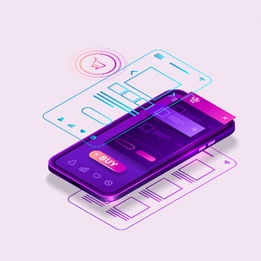
As more and more customers opt for shopping online, expectations regarding the digital customer journey continue to develop. The customer experience has shifted significantly, as consumers now want to be able to communicate directly with businesses. It’s all about conversational commerce, where businesses need to converse with consumers to help them make informed decisions about potential purchases.
In light of this massive paradigm shift, a great asset to every contemporary business is a chatbot, which will streamline and improve interactions between consumers and businesses.
What’s a Chatbot?
To put it simply, a chatbot is a software, i.e., a computer program, that imitates human speech in order to carry out a conversation with a user. Chatbots are mostly used to improve a specific service – typically, customer support for eCommerce businesses.
Aside from providing answers to general customer questions, the role of a chatbot can be further specified, often by programming them to offer product recommendations to existing buyers or to complete purchases for customers.
How Do Chatbots Work?
There are two main types of chatbots, and understanding how each work can help you choose the best one for your eCommerce business.
1. Rule-Based Chatbots
Rule-based chatbots, as the name suggests, work on a predetermined set of rules, and their capabilities are limited to these rules. Also referred to as basic chatbots, they are primarily used for responding to basic and rather specific commands. As such, they cannot interpret more complex language. They’re great for providing quick answers to predictable questions, such as a company’s FAQs.
2. AI Chatbots
AI-powered chatbots utilize machine learning, so they can manage more complex conversations and learn from them in the process. Because they’re capable of interpreting user language, they can be utilized to answer a wider and more complex range of queries. That’s why they are often designed for product recommendations, personalized customer service, collecting consumer data, and so on.
How to Build a Chatbot
At first, glance, building a chatbot might seem like a lot of work that requires you to hire a professional programmer. But that’s not the case, as you now have at your disposal a range of chatbot-building platforms to help you get your bot up and running.
Even Facebook Messenger offers a free chatbot builder. A basic level of coding is required, but there’s also an intuitive drag-and-drop kit to help you. You can use this chatbot on your Facebook account, obviously, as well as integrate it into your eCommerce website.
Some popular and free chatbot-building platforms do require intermediate coding skills, but there are also solutions like Chatfuel, which is ideal for people with absolutely no coding skills. The platform specializes in making Facebook chatbots with a simple drag-and-drop editor. You can easily personalize your chatbot with customized bot names, backgrounds, etc.
Benefits of Using Chatbots in eCommerce
Chatbots are much more than just conversational software. Using them as a part of your eCommerce customer support strategy can yield many business benefits.
1. Chatbots Can Be Used as Personal Shoppers
AI software can instantly access data on consumer behavior and use it to craft a personalized approach in every conversation. That’s why chatbots are able to offer customers incredibly valuable and relevant product recommendations.
2. Boost Your Return on Ad Spend (ROAS)
You might create an amazing Facebook/Instagram ad, but that doesn’t mean that people who click on it will know how to proceed afterward. Add a chatbot to guide their way, and you’re more likely to get your target audience to convert.
3. 24/7 Customer Support
Live chat support is important, but your customer support agents can’t work all day every day. This is where chatbots can truly shine. They can provide instant customer support and respond to queries 24/7.
4. Minimize Cart Abandonment Rates
No matter how efficient your pre-purchase experience is, you’ll inevitably have to deal with abandoned carts. Chatbots can act as cart reminders in this case. Namely, customers are seven times more likely to respond to chatbots than to email reminders.
5. Build a Multichannel Marketing Strategy
Chatbots can effectively gather user information, especially when they pull info from Facebook. You can then use this data to further improve your other marketing channels.
6. Grow Prospect Engagement
When you use a chatbot for your Facebook page, you can program it to respond to every single comment on your posts, thus engaging your followers. Furthermore, you can set up your chatbot to send promotional messages to existing customers, as well as improve the post-purchase experience with shipping updates, for example. This reengages your clientele and helps promote customer loyalty.
In Closing
You might feel that turning to robot software could make your eCommerce business appear impersonal; however, the reality is anything but. With the right implementation and personalization of your chatbots, you can achieve more efficient, profitable, and considerably more intimate interactions with your target audience.
















